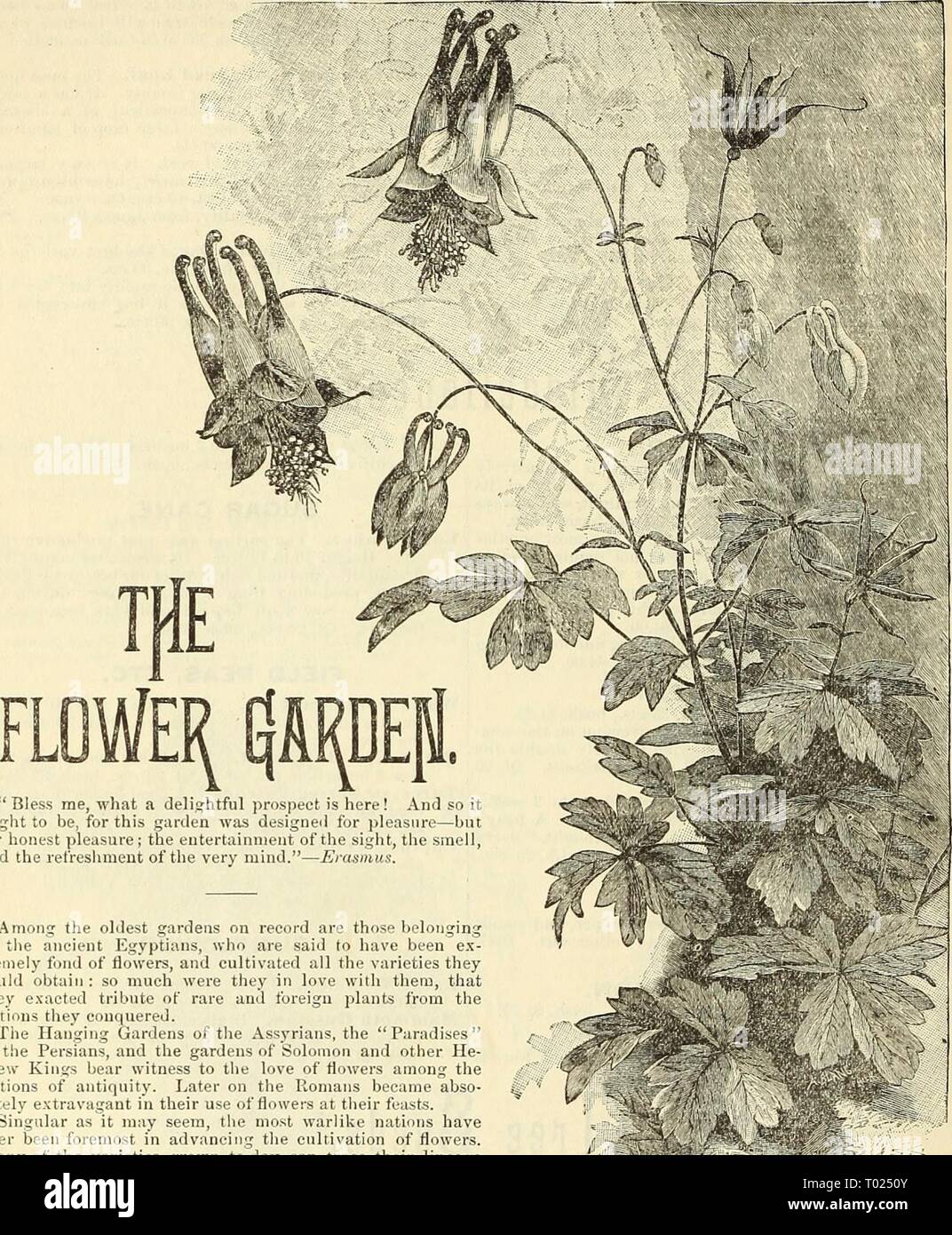Dreer's garden calendar for 1887 . dreersgardencale1887henr Year: 1887 38 DREER'S RELIABLE SEEDS ' Bless me, what a delightful prospect is here! And so it ought to be, for this garden was designed for pleasure—but for honest pleasure; the entertainment of the sight, the smell, and the refreshment of the very mind.'—Erasmus. 'f- Among the oldest gardens on record are those belonging to the ancient Egyptians, who are said to have been ex- tremely fond of flowers, and cultivated all the varieties they could obtain : so much were they in love with them, that they exacted tribute of rare and fo

Image details
Contributor:
Bookend / Alamy Stock PhotoImage ID:
T0250YFile size:
5.7 MB (508.6 KB Compressed download)Releases:
Model - no | Property - noDo I need a release?Dimensions:
1284 x 1557 px | 21.7 x 26.4 cm | 8.6 x 10.4 inches | 150dpiMore information:
This image is a public domain image, which means either that copyright has expired in the image or the copyright holder has waived their copyright. Alamy charges you a fee for access to the high resolution copy of the image.
This image could have imperfections as it’s either historical or reportage.
Dreer's garden calendar for 1887 . dreersgardencale1887henr Year: 1887 38 DREER'S RELIABLE SEEDS ' Bless me, what a delightful prospect is here! And so it ought to be, for this garden was designed for pleasure—but for honest pleasure; the entertainment of the sight, the smell, and the refreshment of the very mind.'—Erasmus. 'f- Among the oldest gardens on record are those belonging to the ancient Egyptians, who are said to have been ex- tremely fond of flowers, and cultivated all the varieties they could obtain : so much were they in love with them, that they exacted tribute of rare and foreign plants from the nations they conquered. The Hanging Gardens of the Assyrians, the 'Paradises' of the Persians, and the gardens of Solomon and other He- brew Kings bear witness to the love of flowers among the nations of antiquity. Later on the Romans became abso- lutely extravagant in their use of flowers at their feasts. Singular as it may seem, the most warlike nations have ever been foremost in advancing the cultivation of flowers. Many of the varieties grown to-day can trace their lineage back to even an earlier date than when Solomon, 3, 000 years ago, mentions ' Camphire with spikenard, ' also 'Saffron, calamus, and cinnamon, with all trees of frankincense, myrrh and aloes, with all the chief spices, ' while roses and violets, narcissus, iris and lilies are lost in the maze of an- tiquity. To Persia we owe many of our favorite flowers ; its climate bringing to perfection in a remarkable degree the bright hues and lovely forms so necessary in modern gar- dens. The taste for gardening is rapidly spreading in this country, so that not alone, in the centres of civilization, but in the smaller towns and villages, there is a growing love for the beautiful in nature, which must bear fruit in years to come in improved dwellings, better surroundings, and happier homes. The ease with which they are cultivated, the large return in beauty and fragrance for a small out- lay, an